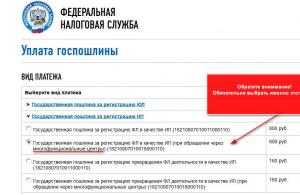Content
When a person has a goal (whether it is a child, a teenager or an elderly person) to buy a worthwhile thing, he is faced with a problem: how to save money correctly? Alas, only a few lucky people can boast of a million-dollar salary, so everyone can learn how to save money.
How to save money with a small salary
If you suddenly have a dream to buy an expensive item, and a loan with crazy interest rates is associated with a meaningless adventure, then you will have to save. The decision to start saving for purchases has been made; now you can start a piggy bank: take a small box and put part of your earnings into it. If you just thoughtlessly spend sums of money and throw change and change into a piggy bank, the accumulation process will take an insane amount of time. How to save money without harming the family budget and quickly?
In order for the process to be effective and to learn how to learn how to save money and save money, you need to make it a rule to write down all your expenses. Write down in a notebook the amount of money spent every day, broken down by category of goods and services purchased. After analyzing the notes made at the end of the work week, you need to understand how much money is spent on entertainment - you can start saving this amount. By making it a habit to analyze your expenses, you will learn how to save money the right way.
How to save for an apartment
The issue of improving living conditions is a problem for Russian young families. When the goal is clear, you need to figure out how to save money. You immediately need to decide on the cost of housing: look at what area you want to live in, monitor existing advertisements. However, do not forget that by the time you are ready to buy an apartment, prices may increase. Take into account the rise in inflation and add ten percent to the cost of current apartments. New housing, as a rule, is empty and without renovation, which also needs to be included in the expected expenses. Useful tips on how to save money:
- You will have to give up bad habits - cigarettes and alcohol.
- To save money, you will have to analyze what the money is spent on. When all expense items are taken into account, you need to think about how you can save money on each of them.
- Before going to the store, be sure to make a shopping list and take with you only the amount you need so that you don’t have the opportunity to spend more.
- If you start going to wholesale stores, the price of basic food products will decrease noticeably.
- You can stop buying sweets or give up your monthly trip to the theater.
- Don’t forget that you can always find a second job or part-time job, which will help you quickly accumulate the required amount.
- You can start giving private lessons or sell unwanted junk.
The money that is accumulating can begin to work for the owner. Put them in the bank at interest. If you have an economic sense, you can play on the stock exchanges. However, this is a very risky business, and you can lose all the money you have accumulated through overwork. Another way to increase your income is to rent out your own car to a taxi service. Using all the methods, you can save up for a small apartment on the outskirts in three years.

How to save for a car
If your goal is not an apartment, but a car, then the amount will be smaller and you will be able to save up faster. The accumulation algorithm is similar to the above:
- all expenses must be taken into account;
- understand what can be completely abandoned or reduced;
- understand where you can get more money, how to make money.
- the last resort is to take out a loan, but a debt hole, from which it is not easy to get out, is not the best way out.
Almost all rich people once started from scratch, but thanks to their skills and talents, over time they achieved both position and prosperity. Just remember the work “The Financier” by Theodore Dreiser, which many probably read in their youth, where the main character, although he receives certain skills from his banker father, eventually becomes a millionaire only through his own efforts. So how can you start saving money if you don’t have any?
If a person is thinking about how to save money for some purchase, to open his own business, or to ensure a comfortable existence for himself and his children in the future, this is already the first step to success. The future will depend only on patience, as well as on how much a person knows how to listen to advice and act according to reason.
Save wisely
There are several simple and, in general, banal rules of accumulation that are known to almost everyone. Everyone knows that in order to save a certain amount of money, you need not to spend money on unnecessary things, save somewhere on purchases if this does not greatly affect their quality, and most importantly - earn more than you spend. People always have problems with this issue: is it possible to save on food or on health, as my friends will look at me if I use an ordinary phone and not an Apple product, or go on vacation to Crimea or Spain. These issues will no longer seem so serious if a person thoroughly sets about saving money (but you still can’t save on health).
One of important obstacles On this path is a person’s prejudice that in order to accumulate funds it is necessary to cut down one’s current budget, that is, to lose something here and now for some time later. This is fundamentally wrong. It is advisable to save funds not on a residual basis, as a last resort, but so that this is the first need when receiving a salary, fee, etc. I received the money and immediately sent it to my account, and it is best if a person has several such accounts, for example, to buy a house, a car, or for a child’s education. It’s even better if the funds go not to the card, but to a deposit in a reliable bank, which is opened for a certain time, say for a year: this way it will be more difficult for a person to use these funds ahead of schedule, which means it will be easier to save something.
You can start even with a tiny amount, but the optimal amount can be considered an amount equal to 10-15 percent of personal or family income.
 There is a rather interesting way that allows a family to accurately determine expenses and not spend too much. You need to calculate how much each family member receives per month, then from this amount subtract the costs of utilities, basic necessities, loan payments if there are debts, gasoline and other transportation costs, as well as another ten percent for a bank deposit. We divide the remaining amount into four equal parts and put them in envelopes. Each week the envelope can be opened and used for additional needs without resorting to another envelope until the next week. It’s great if by Saturday or Sunday there is something left of the allocated money, you can spend it on relaxation and entertainment with a calm heart. Since there are less than five weeks in the month, the fifth envelope will also come in handy; you can put some small amount in it from the amount that was distributed over four weeks.
There is a rather interesting way that allows a family to accurately determine expenses and not spend too much. You need to calculate how much each family member receives per month, then from this amount subtract the costs of utilities, basic necessities, loan payments if there are debts, gasoline and other transportation costs, as well as another ten percent for a bank deposit. We divide the remaining amount into four equal parts and put them in envelopes. Each week the envelope can be opened and used for additional needs without resorting to another envelope until the next week. It’s great if by Saturday or Sunday there is something left of the allocated money, you can spend it on relaxation and entertainment with a calm heart. Since there are less than five weeks in the month, the fifth envelope will also come in handy; you can put some small amount in it from the amount that was distributed over four weeks.
This way, it will be easier for the family to manage their expenses; they won’t have to think about every purchase, they will only need to decide whether there are enough funds for this week’s expenses. In addition, this way one of the most important rules will be observed - that same ten percent of income will be immediately sent to the funded part, and not according to the “last resort” principle.
The rule “Save more tomorrow” according to Shlomo Benartzi
Economist Shlomo Benartzi, who participated in the development of US pension programs, came up with his own principle of saving money from scratch, which is to gradually increase investments in your savings. The bottom line is that every time a person receives a salary increase or a promotion, he begins to save a larger percentage of his salary. You can increase the amount for savings investments by one percent, by five percent, by ten, the main thing is to follow this principle of gradual increase.
Let's look at an example:
If you save according to this scheme, then after four years a person will have saved 349 thousand rubles. If you consider that this money can be kept in a deposit account and receive interest, the amount will be even better. The pace of income will grow, maybe not as fast as you want, but at a normal and reliable pace.
What is very important, according to Shlomo Benartzi, is that you can start with a small five percent, but gradually our thinking will get used to increasing the funds set aside for the future, which will be associated with an increase in total income, and therefore prosperity. Over time, the fear of making such investments will disappear, and the process itself will become a habit, and perhaps even change your lifestyle.
Let's sum it up
Those who are really interested in the topic should read the books of economists who have spent many years studying this issue. Often their works are written in interesting and easy language, “stuffed” with funny examples and incidents from life. Well, if the stage of accumulating funds from scratch is completed successfully, in the future it is advisable to get acquainted with the opinions of experts on how else to increase your income through proper investment and investment.
Learning to save money correctly is important for everyone, even those who receive a small salary. In order not to borrow until payday and to be rich, you need to follow simple rules.
Most people in Russia today are financially illiterate. This is constantly used by banks, credit firms, sellers, scammers and many others. Even people who seem to receive decent salaries fall into credit bondage and are forever without money. What can we say about those who have small salaries - poor students, pensioners, young mothers...
To break the vicious circle of lack of money, it is important to use simple rules for managing finances in everyday life, which will help accumulate money.
Savings will protect you from emergencies. Plus, if you save money, you won't have to turn down unexpected, exciting opportunities in life.
The basic rule of wealth is very succinct: “Spend less than you earn.” Just four words. It would seem, what could be simpler? But for some reason, the opposite always happens to many people.
How to save money even with a small salary
Let’s look at what methods will help you implement the main rule of a rich person and start actually saving money.
1. Keep track of your budget
If you are going to save money, then it is important to start maintaining a family budget. Don't spend money thoughtlessly on shopping and paying bills, but keep track of all your expenses during the month.
This way, you can understand how much money was wasted, and what you can save on next month without much harm to the family.
In addition, in a couple of months you will know exactly how much money you and your family need for a normal existence, and how much you can put into a piggy bank.
2. Live on the same amount
If you have already calculated how much money your family needs on average per month for a normal life, then you need to fix this amount. It's no secret that we have easy money from time to time. Some people are given a bonus, others get additional earnings, or maybe you finally managed to move up the career ladder and your salary increased a little.
Rest assured: as income increases, expenses will tend to increase. Does this mean you won’t be able to save money again?
You need to set for yourself a fixed amount of money that you will spend on living every month, even if easy money appears. It is better to immediately save additional income, leaving only the necessary fixed amount for living.
3. Save 20 percent of your income
If difficulties arise in determining the fixed amount necessary for the normal life of a family, then you can use a simpler method of saving money. Immediately after receiving any income (including easy money), put 20 percent of the funds received into a piggy bank. Moreover, it is important to do this not at the end of the month, but right away! If you postpone this important matter until later, then rest assured: the money you planned to save will probably already be spent.
How to learn to save money in order to save?
Understand a simple idea: everyone is trying to make money off of you. Even when you yourself earn money in the service, your employer profits from your work. In modern life, you are constantly being hunted by those who want to take your money. Thousands of marketers come up with cunning schemes to take your money in such a way that you will also be satisfied when you part with your hard-earned money.
To avoid this, you should try to follow the following principles.
4. Simplify your financial life
The more complex your financial life, the more time and effort it takes. Along with this, the chance of getting confused and making a financial mistake increases.
The more loans and credit cards there are, the greater the chance of not noticing missing funds or missing another payment.
Pay attention to the services of your mobile operator. Do you need all the connected paid features? If not, disable the unnecessary ones.
Deal with utility bills. Calculate the feasibility and amount of savings when switching from average tariffs to metering water, gas and electricity. Buy energy-saving light bulbs. They really reduce your electricity bills.
See what other recurring “planned” expenses you can cut.
It is useful to do such general cleaning once every few months.
5. Get rid of loans with the highest interest rates
Try refinancing loans from other banks at a lower interest rate.
Take advantage of an effective way to get rid of loans. Select the loan with the highest interest rate and start paying off this debt twice as fast, that is, in double payments. Do this until the debt is paid off. Then add the entire freed-up amount of money that was spent on repayment to the payment on the second debt until that one is paid off. And so on until all debts are eliminated.
6. Go shopping with a shopping list.
A pre-prepared shopping list with which to go shopping will help you avoid spontaneous spending. The point of shopping lists is not only to ensure you don’t forget to buy anything, but also to avoid buying too much.
The easiest way is to draw it up on a regular piece of paper. For these purposes, you can use “reminders” built into gadgets and, in general, any application where you can make a simple list.
7. Stop using a bank card
Using a credit card or even a debit bank card makes it difficult to save money. If you have the habit of paying in stores with a bank card rather than money, then try switching to cash.
When we pay with a card, we don’t realize the value of the money we pay for goods - we enter the PIN code and we’re done. And now there are bank cards that don’t even need to be inserted into the terminal. It is becoming easier to pay, and, accordingly, saving and saving is becoming more and more difficult. In addition, the card may contain more money than you would take to the store for purchases. There is a high chance of spending more than you planned.
When you go to the store with cash, do not put more money in your wallet than you need for your previously planned purchases.
8. Use the 10 Second Rule for Cheap Shopping
Did you see something inexpensive on the counter and immediately wanted to buy it? Hold this thought in your head for 10 seconds and honestly ask yourself: do you really need this thing? Is it really impossible to do without it? Often these 10 seconds are enough to understand whether you really need the thing.
For expensive purchases, use the 30 day rule. If you want to buy something expensive, do not rush to spend money, but think about the importance of this purchase for a month. Most likely, after 30 days there will be no trace left of your intense desire to buy this thing.
9. Estimate the cost of purchases in terms of opening hours.
To avoid making unnecessary purchases, calculate how much one hour or day of your work costs. Then, when you buy this or that product, think about whether the thing you are planning to buy is worth the few hours, or maybe even days, of your labor that you spent to earn this amount of money?
This principle works very well when purchasing household appliances or other large goods, when time is no longer calculated in hours, but in days, or even months. Such financial “sobering up” helps you not to commit stupidity in the form of buying unnecessary expensive goods.
How to save money correctly


Now that we have gotten rid of unnecessary expenses and learned to save money from our income, we need to manage our funds correctly
The path to proper money management
Divide the free money that appears as a result of all your efforts into several parts.
1. Create a financial reserve in case of unforeseen situations. Free money is needed to solve unexpected problems that arise. It’s better if it’s cash, so that in case of an emergency you don’t have to urgently run to the bank.
2. Open a deposit in one of the reliable banks, for example, VTB, with the ability to replenish and partially withdraw money without losing interest. As a rule, expense deposits do not have a high interest rate, but you can put a certain amount into this account every month and withdraw part of the funds at any time.
3. Apply for a time deposit at the most favorable interest rate. This will be useful when you have already accumulated a decent amount. You won’t be able to withdraw funds from such a deposit at any time, but you will be able to accumulate money. Open deposits in rubles, dollars and euros to get even more income if the currency rises in price.
4. Save money not for the sake of abstract wealth, but to achieve a specific goal. You can even open several accounts to save up: for repairs, for a car, for a dacha...
I know what I'm talking about. I am a financial analyst. This means that I help people and companies figure out what their money is and how to manage it. For example, I helped the editorial director of “Knife” transform from a person who loses money - due to stupid spending or simply crumpled pieces of paper that fell out of his pocket - into an experienced user of a personal accounting system who knows how to save and make long-term deposits. I also saved her from failing in math at school, but that’s another story.
Why keep a personal budget?
If you are interested in this issue, then you have a problem related to money. Counting down the days until payday? This means that your expenses exceed your income: simply put, you are living beyond your means. Do you want to save up for an important purchase, but over and over again you empty your piggy bank on some not-so-necessary things? The spending “program” was poorly planned. Due to the size of the “minus”, the credit card has turned into a pile of existential bricks, pulling you to the very bottom by your pocket. Are you borrowing to pay off the loan and borrowing again to pay off the debt?
If, at the same time, you seem to have a decent salary of the size of “enough for everything,” but for some reason you still don’t have enough, most likely it’s not in your wallet, but in your head: it’s a mess. This problem is primarily solved by the ability to manage a budget.
What is a "budget"
In the classical sense, a budget is your plan for income and expenses (or your company or maybe even your state) for the year. Usually it is drawn up for a year, this is relevant if you want to make a large purchase or, who knows, for some reason decided to take out a mortgage. But if you faint at the thought of annual reporting or your task is to stop eating only buckwheat after taking a payday break, you can start by analyzing and planning the month. But it makes no sense to make plans for a longer period than a year: the amount of uncertainty increases to an uncontrollable level, since your personal situation or the country’s economy can change greatly beyond the annual horizon.
How to analyze your finances
To create a budget for the year (or month), you need to know how much money you make in a year (or month) and how much you typically spend. To find out, you need to have statistics of income and expenses for some previous period. And to do this, you need to record the receipt of money - salary, debt repayment, one-time fees, regular income from a rich uncle and planned winnings at the casino (just kidding, don’t gamble to make money). And write down expenses: how much did you spend on regular items like food and housekeeping, what regular apartment bill do you pay, how much was spent on transportation, endless treatment for a runny nose, craft beer on Fridays, attempts to “walk” it at the gym, etc.
If you pay in cash, then in order to record your expenses, you will have to remember your grandmother’s evenings in the kitchen with a pile of cash receipts and meekly repeat her fate. Try writing down your expenses with a quill pen to add some extra flair.
Jokes aside, getting rid of cash is not always easy, and remembering to pay in cash is difficult. Therefore, it’s really better to save the receipts.
If you use bank cards and non-cash payments are your main payment method, then you already have the basis for budgeting, even if you haven’t done anything for it. In a mobile application or online banking, you can usually download a statement and copy all the records already collected by cost groups into an Excel spreadsheet with the budget. True, not every bank provides this information in a digestible form, but the largest and most popular ones allow you to use this data without any problems. You will receive the average amount of income and expenses by month and year. This will allow you to start planning.
I have always worked in Google spreadsheets and set up all the calculations manually, but now there are already good solutions for mobile applications. For example, the CoinKeeper application can help you analyze your spending and estimate your budget, but the free version is very limited in its use. My favorite is “Zen-Money”, the application saves time and synchronizes itself with my online bank every 20 minutes (for a person accustomed to manual accounting work, this is simply mystical!) - all that remains is to make rare payments in cash, after which the checks can be thrown away . There is also a convenient adjustment system if something doesn’t work out for you.
Step one: count your income
First of all, plan your income; it’s easier with them, especially if you have a fixed salary. If you are a freelancer, find your average monthly salary.
When planning, proceed from the principle of prudence: we hope for the best, but keep in mind that the reality will be more modest. That is, it is better to plan income slightly lower than expected, especially if there is some degree of uncertainty (and expenses are slightly higher, in case of unforeseen expenses).
If you have an annual bonus that you are confident will be paid, be sure to budget for it. If in doubt, do not take it into account, let it be your reserve.
Step two: study expenses
Once we know what our income is, we can understand the spending limit we must meet to keep spending reasonable - and to learn how to save.
First of all, I recommend drawing up a cost structure. If you have already switched mostly from cash to bank cards, you will again find the mobile application useful; in it, expenses are grouped into categories: pharmacies, cafes, books, transport, supermarkets, etc.
Analyze, based on this list, which categories you spend on most often, but you don’t need to use a highly detailed structure, it will only complicate working on the budget. 6–8 categories are enough.
My main ones are: food and household goods, rent payments, health and beauty, sports, clothes and shoes, travel and entertainment, gasoline and car expenses, education. Separating, for example, food and household goods from a common receipt in a supermarket is tedious - so it would be easier to combine purchases from one store into one item.
Once you've figured out how much you're spending on what, make a spending plan for those categories in the coming month (or year, depending on your level of panic about having to plan). Start with the most obvious and obligatory regularly recurring expenses, focusing on your statistics. And be sure to remember about one-time payments like property tax, car maintenance or insurance premiums. This way you will understand how much you will spend in any case - “for life”, as they say.
Step three: compare income and expenses
Compare what you wrote down for expenses and income. If the expected expenses exceed the expected income, then it is worth taking a close look at each item and understanding whether there are any unnecessary expenses.
So, do you really want to spend 5,500 a month on takeaway coffee because you are too lazy to bring your mug and a pack of coffee to the office for 800 rubles - or not?
It's worth thinking about.
What to do?
Understanding exactly what and how much you spend is useful, even if you have some amount left over each month. You may unexpectedly discover that, without even knowing it, you began to spend 20,000 rubles a month on cafes and restaurants since your salary was increased - although the daily expenses were somehow completely unnoticeable. You had free money - but you used it as “extra”.
To prevent money from being spent on things that you didn’t “choose”, you need to keep an eye on “lost” articles, specifically limit them - and either spend the freed money on a category that is more useful for you, or start saving it.
Sometimes just counting your expenses can open your eyes to poor spending habits and change your life. This happened to me with coffee, I couldn’t believe that I was spending 6,000 rubles a month on a habit that made me nervous and caused insomnia. No, I love coffee - but several cups a day turned out to be unnecessary not only for my body, but also for my wallet.
I used my professional knowledge (and some neuroscience knowledge) to trick my inner coffee drinker and earn an income from it.
Every time I want an “extra” coffee, I open the bank’s mobile app and transfer the cost to my debit card savings account. But this is not just saving: for storing money, banks give a percentage of the invested amount.
Every month I receive a percentage for my not drinking coffee - and at the same time a dose of dopamine, encouragement for reasonable financial behavior. And since I can invest this money, and the coffee I drink leaves my body without any benefit, the pleasure from the piggy bank exceeds the pleasure from the bad habit.
How else can you save
Even if you don't have a small bad habit that's costing you, saving a small amount regularly can provide you with a big investment. A friend of mine with four younger brothers and sisters, for example, when I told her about the possibilities of saving using a debit card, opened a savings account for each child and asked relatives to send 500-1000 rubles a month, then to divide the amount equally between the children.
For each family “unit” such a contribution was unnoticeable, but within a year the children were able to buy a computer, a piano, a monitor, passes to the pool and scientific classes, and a trip to a fashion camp - something their parents would not have been able to do without the contributions.
True, the interest on savings accounts is usually lower than on the card balance, but the accounts provide more opportunities and ease of use: you can name them, set a goal, visualize it by adding a motivating picture, and calculate the time in which it can be achieved. For example, you want to collect 30,000 rubles in six months - the mobile bank will offer you to save 1,250 per week (and it will be right) and will show how close you are to the goal.
Voila, you have learned to save!
The next level of savings is the amortization of large purchases, that is, the gradual reimbursement of the purchase price so that a meteorite does not form a hole in your wallet and so that the “wound” in your finances gradually heals.
Let's say you were smart and bought an iPhone for only 50,000. You know that it will last 3 years for sure. Divide the purchase amount by 36 months: it turns out to be approximately 1,400 rubles - this is how much it costs you monthly to use a smartphone worth 50,000 with a service life of 3 years. This procedure is very similar to the usual “savings” for a purchase, but what is important here is not just accumulation, but the very meaning of this procedure: you realize how much the item of purchase costs you per month and gradually gradually part with the amount of money that is commensurate with the cost of using it subject.
For the first time, such a procedure with a budget is difficult to understand: I just spent money, why should I pay again?
But as you approach your next purchase, you will realize that for 3 years you have been paying for the use of an iPhone - and therefore you have already saved up money for a new one. After purchasing the next one, you again begin to “amortize” its cost: divide the price in proportion to the period of use.
Ideally, do this with every major purchase. This way you can not only save money, but also evaluate the real cost of the things we use every day. But this level of financial literacy is not for the faint of heart.
Why does a bank card help you save money better than a glass jar?
Remember the main rule of a financier: money must work. If the bills are lying under your mattress, you’re doing well for resisting the temptation to squander them. But if in the near future you do not make a purchase that will help you earn money (for example, do not buy a new tool for your work), or do not put it on interest, the value of this money will gradually fall.
The Central Bank of Russia predicts inflation of 5–5.5% in 2019: this means that each of your blue notes of 1000 rubles depreciates by 15 kopecks every day.
Just don’t immediately rush to play on currency differences, buy shares or ask the bank to cut off a piece of a gold bar for you. Start with a simple and secure tool - a debit card.
To decide which bank card to choose, you need to compare who offers what percentage.
If certain conditions are met - you do not break even, and you always have a certain amount left on your card, you spend a certain amount of money from the card every month, or use other bank products - the bank may offer an increased rate on the account balance.
For example, if you spend more than 3,000 rubles per month on your card, Tinkoff will give you 6%, but at Alfa Bank and VTB you need to spend more than 70,000 and 75,000 rubles, respectively, to get the same income. Income on the card is mainly accrued on the daily balance, so it is beneficial to keep the money on the card for as long as possible and pay for large purchases at the very last moment - this way you can get interest on a larger amount.
To receive even more benefits, you can make your debit card a salary card. This provides some advantages: reduced interest on loans and mortgages and increased interest on account balances and deposits.
Life hack: you don’t have to be employed on a permanent basis to have a “salary” card! Some banks assign your card the status of “salary” if you transfer the required minimum amount of funds monthly with a note in the payment “salary” - even if this is a transfer from one of your cards to another.
If your income allows, you can have several of these “salary” cards in different banks, which in the future may provide you with more advantages when choosing a bank to receive a loan: several banks will have premium conditions, and Raiffeisenbank even offers 1% on income for this for the card balance.
What is cashback and why do banks return money to us?
When it comes to paying for goods and services, the card is more profitable than cash because of cashback - this is the percentage that the bank returns to you at the end of the month on purchases paid for with the card.
Banks, of course, are not crazy to just give us their money. To understand where it comes from, you need to consider that there are three heroes involved in a purchase paid for with a card: you, the seller and the bank, which moves the money from your account to the seller's account.
The seller pays him a commission for using the bank’s services - and it is part of this that the bank returns to you, so that you feel love, care and are more willing to bring your money to the bank (it’s profitable!).
Basically, banks return 1-3% on the amount of payments and offer several categories of increased cashback. Tinkoff, for example, returns 1% of all payments, and also offers, once every three months, to select three categories from which there will be an increased cashback of 5%: these can be pharmacies, entertainment, restaurants, cars, transport, books and much more. more.
Let’s say in January I chose the “car services” category because I’m planning to undergo an expensive technical inspection soon and I’m going to get 5% of its price back on the card. My budget helps me figure out the right categories, in which large purchases (5% of which often turns out to be a significant amount) are planned months in advance. Banks are not fools and do not offer increased cashback categories that are beneficial to you, so for a profitable large purchase, it is useful to wait until the “carousel” of offers reaches the desired type of goods.
Alfa Bank offers different cards with one (or two) categories of increased cashback. For example, a Cash Back card allows you to earn 10% at gas stations, 5% at cafes and restaurants, and 1% on all other purchases.
Raiffeisenbank promises to return up to 3.9% for any purchases - however, with points that can only be spent through the rewards catalogue. This condition makes their cashbacks insufficiently liquid. It’s much better if the reward for purchases is replenishing your current account with real money.
VTB will pay you from 1% to 2.5% depending on the amount of purchases: up to 15,000 - 1%, up to 75,000 - 2%, over 75,000 - 2.5%. You can connect various options to the card, for example, 10% for the “Auto” or “Restaurants” category. The VTB multicard became the best bank card of 2017 according to Banki.ru, because it is a Frankenstein monster made of a debit, credit and salary card at the same time. Using it, you can monthly change one of many options such as increased cashback, increased income on accounts and deposits, and many others.
If you now feel like you want pills from greed - and more, then get several cards and pay with them, choosing the most profitable one depending on the category of spending! This will just require increased attention.
It is important to know about categories that sometimes they are not taken into account by the application correctly, so always check how the transaction went. If the purchase falls into the wrong category, you will not receive cashback, but this is not the application's fault, but the problem of classifying your purchase based on the place of purchase. For example, when I had an increased cashback on equipment, I bought a smartphone in a communications store - the purchase went into the “communications” category. I quickly saw this and informed the bank, enclosing a check. My purchase was re-credited to the “electronics” category, and at the end of the month I received my cashback on the card.
There is also a great life hack with cashback: pay with a card in cafes and shops for retrograde friends who still use cash. Friends will not lose anything by giving cash to you, and you will also receive cashback for them.
If you are preparing to buy clothes and shoes, equipment, or sit out in a restaurant on a grand scale, check in the application for bank partners who offer the services you need with a big discount when paying by card. It can take you big if you're careful.
The map makes life easier
If you are a financial bungler, then the card will protect you from losing money, falling out of your pockets in crumpled pieces of paper or “disappearing” on something you can’t even remember what. If you are an ever-forgetting wallet technophile with a smart watch, then it can become your bag of gold, leaving your pockets and thieves on the tram empty. I don’t lose money, but I connected my card to my smart watch and don’t try, as before, to put a hundred dollars in my sneaker before a run so that I have something to buy water on the way back.
Well, in addition, the card helps solve the most unpleasant routine matters of adult life. If you're just starting out on the path to paying your electric bills, utilities, and car fines, and the prospect of scrambling for paperwork in a dirty mailbox and trudging to the bank to pay seems like an existential problem, relax and turn on automatic payments.
Since you are putting money on the card, make sure that all the bills you need to survive are debited from it on time: you will just receive a notification, not late fees.
This may sound a little boring. Maintaining a budget, of course, requires discipline - but it is not at all as scary as you imagine. It takes 10 minutes a day in the evening to record your daily expenses. But control makes it possible to plan - and this, ultimately, is the freedom to which we all strive.
There is a joke that in our country the only thing that is stable is wages. Everything becomes more expensive, prices rise, but wages remain at the same level. And it is not always possible to earn more income. Some people fail to be in the right place at the right time to do this, while others lack education.
In this article you will learn how to learn to save money. The working methods given below will help you start saving for an important and cherished purchase as soon as possible.
The given technique involves working on yourself in two stages. Each of them is important and must be completed.
How to learn to save and save money?
First of all, remember the following two steps to follow:
- save;
- save up.
We pass the first stage
In order to understand how best to save money and save money, you first need to track your expenses.
It will be enough to simply keep a notebook in which to write down your expenses for the month. For convenience, you can create a spreadsheet - this will make it faster and easier to sort all expenses into categories at the end of the month.

If there is an acute problem with money, then the best thing is to stop eating unhealthy foods. These include sweets, candies, chips, crackers, Coca-Cola, products from McDonald's, etc. This list can go on for a long time.
Let's give up bad habits
In times of saving, anything that is harmful to health is clearly not what you should spend your money on. Despite the fact that smoking is officially recognized as a dangerous activity, due to which the lungs and throat suffer and malignant tumors are possible, there are no fewer smokers.
Alcoholic drinks will also not save your budget. In addition to the fact that alcohol destroys brain cells, it can suck the last money out of your pocket. After all, how nice it is to get together with friends in the evening and have a heart-to-heart talk over a glass.

If you give up alcoholic drinks altogether, you will feel how much more money you will have in your wallet. This is not to mention the gratitude from the body that you will receive in the form of improved health.
How to learn to save and save money? Give up all bad habits and don’t waste your time and money on them.
Communication costs
Every month we top up our mobile phone account and also pay for the services of our Internet provider.
And it would seem that this is not a lot of money, but every month it still places a burden on people. Here you can save money by switching to a more optimal tariff.
For example, if you use the Internet only to read news and watch short videos, then a speed of 100 megabits per second is absolutely not needed. It is enough to switch to the cheapest service package with a speed of 1-5 megabits.
When it comes to the services of a mobile operator, the saving lies in not making expensive calls: to numbers of expensive operators, abroad, while roaming.
Also, if you have free minutes, SMS, MMS, then try not to go beyond the allocated limit, otherwise you will incur additional costs.
while shopping?
While exploring the question of how to learn to save and save money, let’s look at the purchases we make. Everything here is quite easy, you just need to follow some rules. It's no secret that clothes that are sold out of season are put on shelves at a large discount (often about 50%). We need to use this knowledge.
That is, in the summer you need to buy winter things, and in the winter - summer things. Thanks to this you can save a lot of money.

Another good tip on how to learn to save money and save money is that you don’t need to be fooled by advertising. They don't always tell the truth there.
You can give a funny example: on TV they often say: “Our dog food has become even tastier!” And who tests the food and says that this particular one tastes better? Do people or dogs tell it themselves? You should always be skeptical about advertising.
The situation is similar with medications. Of course, there are imported products that have no analogues within the country. But there are also those that are no worse than imported ones. They have the same active ingredient, but for some reason advertising makes people buy more expensive ones because they think it’s more reliable.
Let's have fun wisely
But this will only be correct if there is a catastrophic lack of money. In other situations, you can simply reconsider the types of entertainment you have and bet on cheaper ones.
For example, instead of a disco, you can have a party at home with friends - you don’t have to pay for tickets, and a kitchen with drinks is much cheaper.

We reduce other expenses
Absolutely all waste cannot be classified into certain categories. Very often in life there are situations when you need some little thing right now. In such situations, it is important to simply remember that those 50-100 rubles that you spend can be useful to you in more important matters.
So, we looked at ways on how you can reduce your expenses. Let's move on to a review of some ways to save money that will help you save for your dream.
The main thing is to set yourself a clear task and set deadlines for its completion, based on your income. Naturally, a person will not be able to save up for a new Rolls Royce if his salary is 40 thousand rubles. per month. Therefore, you need to soberly assess your capabilities.
Let's figure out how to learn to save money on a modest income. To do this, you need to understand how much you can save monthly by following the methods described above. Then roughly calculate the amount of money you are willing to spend on the purchase or trip you have planned and divide it by the amount of monthly savings.
As a result, you will know how much you need to save to achieve your goal. Disappointing with the result? There are two ways out of this situation - either start saving more actively, or look for additional sources of income.

Also, don’t put money under your pillow. If you are looking for an answer to the question of how to learn to save money on a modest income, then open a deposit account at a bank. Its validity period should be the same as the time you planned to achieve the goal.
Moreover, the further this bank is from you, the better. Open not even in one bank, but in several, which are located in different parts of the city. This can be done for those who notice that they have a particularly strong desire to spend the accumulated funds immediately. The reluctance to wander around the city and human laziness will simply discourage the desire to spend money that has been accumulated over several months.
Don't have time to replenish your own deposit? Activate the contractual write-off service from your salary card. It is very convenient to activate the automatic debiting service. You can choose a percentage, set an amount, or allow the bank to automatically round up rubles in the account to ten times. Yes, in the 21st century this is not possible.
And so gradually and not significantly for your pocket, the money will be transferred to the deposit. It’s also convenient because the bank will also pay you for this in the form of deposit interest. Of course, you won’t be able to make money on them, but it is quite possible to reduce the impact of inflation on your own savings.
The material above will help you learn how to learn to save money and save money. The program is effective; all you need is desire and willpower.









